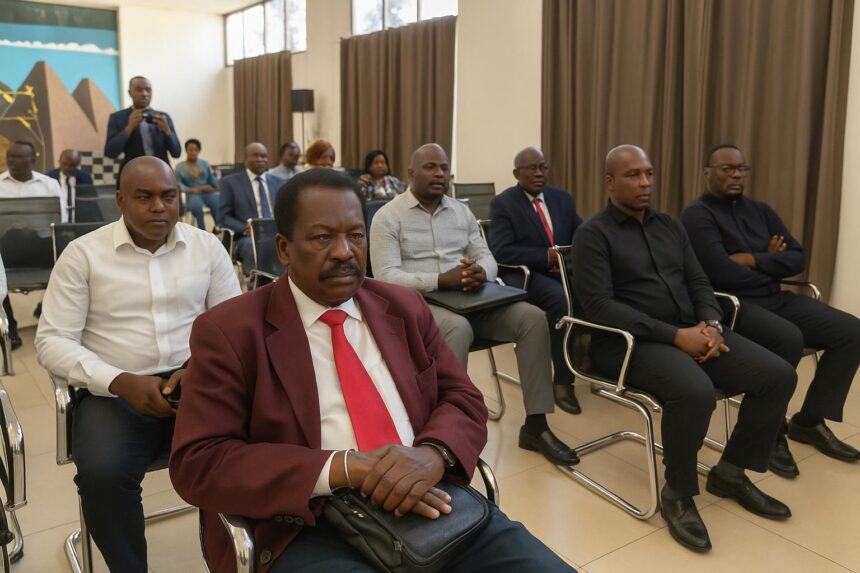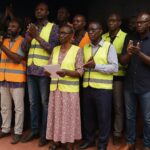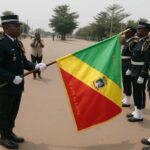Brazzaville prepares for global forum
From 9 to 13 September, Brazzaville will become a living classroom as scholars, students and curious residents gather for an international colloquium marking the 145th anniversary of the treaty signed on 10 September 1880 between King Makoko of the Téké and French explorer Pierre Savorgnan de Brazza.
Unveiled at a 6 September press briefing by Belinda Ayessa, director of the De Brazza Memorial, the forum carries the evocative theme “On the Road of History”, underlining its ambition to link past lessons with present reflections and future initiatives.
Flanked by Confédération Générale Télé president Eugénie Mouayini Opou, scientific committee chair Jean Félix Yekoka and Culture Ministry adviser Samuel Kidiba, Ayessa stressed that the gathering is not restricted to academics; it invites the wider public to rediscover, debate and celebrate a foundational page of Congolese identity.
Passing history to the next generation
“When we fail to pass knowledge on, we leave our youth wandering,” Mouayini Opou warned, calling the colloquium a return to roots. She believes giving young Congolese solid historical references will help them understand, defend and discuss their heritage with confidence at home and abroad.
In the same spirit, Yekoka promised that the discussions would not shy away from nuance. By reviewing triumphs as well as missteps, he hopes the forum will lay ground for “working on errors, if any existed, and moving things forward” without falling into complacency.
Five panels to explore Africa’s roots
The programme is built around five panels: the socio-anthropological history of pre-colonial African societies; structures of political and religious power; imaginary cultures and African identity; endogenous knowledge, material culture and heritage; and the contribution of the pre-colonial era to today’s state-building processes.
Each session is expected to blend academic papers with open dialogue, allowing elders to sit next to influencers, historians next to filmmakers, in a deliberate attempt to break classroom walls and transform the city itself into a collaborative knowledge space.
Beyond theory, organisers want Mbé, ancestral capital of the Téké kingdom, to serve as a living exhibit. Kidiba underlined its “touristic and memorial dimension”, insisting that promoting the site could boost local employment while strengthening the candidacy for its inscription on UNESCO’s intangible heritage list.
Beyond academia: tourism, economy, digital outreach
The Makoko–De Brazza treaty itself, often summarised in textbooks as just a pact of friendship, will be re-examined in depth. Speakers plan to revisit the negotiation context, the symbols exchanged, and the ways successive generations interpreted the document inside and outside Congo-Brazzaville.
Archival maps, royal artefacts and personal letters are being prepared for temporary display at the De Brazza Memorial so that visitors can visualise the environment of 1880. For many residents, it will be the first close encounter with objects usually locked in national collections.
Ayessa confirmed that eminent intellectuals from neighbouring countries and the diaspora have accepted to moderate debates, a step she says will “open Congo’s borders through ideas” and position Brazzaville as a laboratory for continental dialogue on memory and nation-building.
Financial backing comes mainly from public institutions, but organisers welcome private partners interested in culture and youth empowerment. They insist, however, that no sponsor will influence the scientific programme, whose credibility rests on the independence of the committee headed by Yekoka.
To reach digital audiences, the media team produces short video explainers, Instagram reels and an interactive podcast where local artists interpret treaty themes. Live streams will let students in Pointe-Noire and Dolisie send questions in real time.
City authorities expect higher hotel occupancy and restaurant visits. While figures are pending, the tourism board says even modest delegate spending could inject welcome stimulus into small businesses recovering from pandemic slowdowns.
Security arrangements are being coordinated with municipal police to ensure smooth traffic near the Memorial and along the Congo River promenade, where evening concerts are scheduled. Organisers promise clear signage and shuttle buses so that residents can enjoy festivities without adding pressure to the city’s busy taxi network.
Towards a permanent observatory of memory
Although this is the first edition, Yekoka says the ultimate goal is to institutionalise the colloquium. Creating a standing calendar would, in his view, turn the event into a permanent observatory where fresh scholarship and community testimony can meet every year to enrich the national narrative.
Participants are particularly eager to hear the keynote on the kingdom of Mbé and its neighbours, chosen as the inaugural sub-theme. Historians argue that understanding regional dynamics of the nineteenth century is essential for grasping contemporary issues of border, authority and cultural exchange in Central Africa.
As countdown banners light up the capital, the message is clear: the Makoko–De Brazza treaty is not merely a footnote. By re-examining it collectively, Congolese citizens, researchers and visitors hope to transform memory into a driver for unity, economic creativity and international visibility while boosting diplomacy and soft power reach.





















